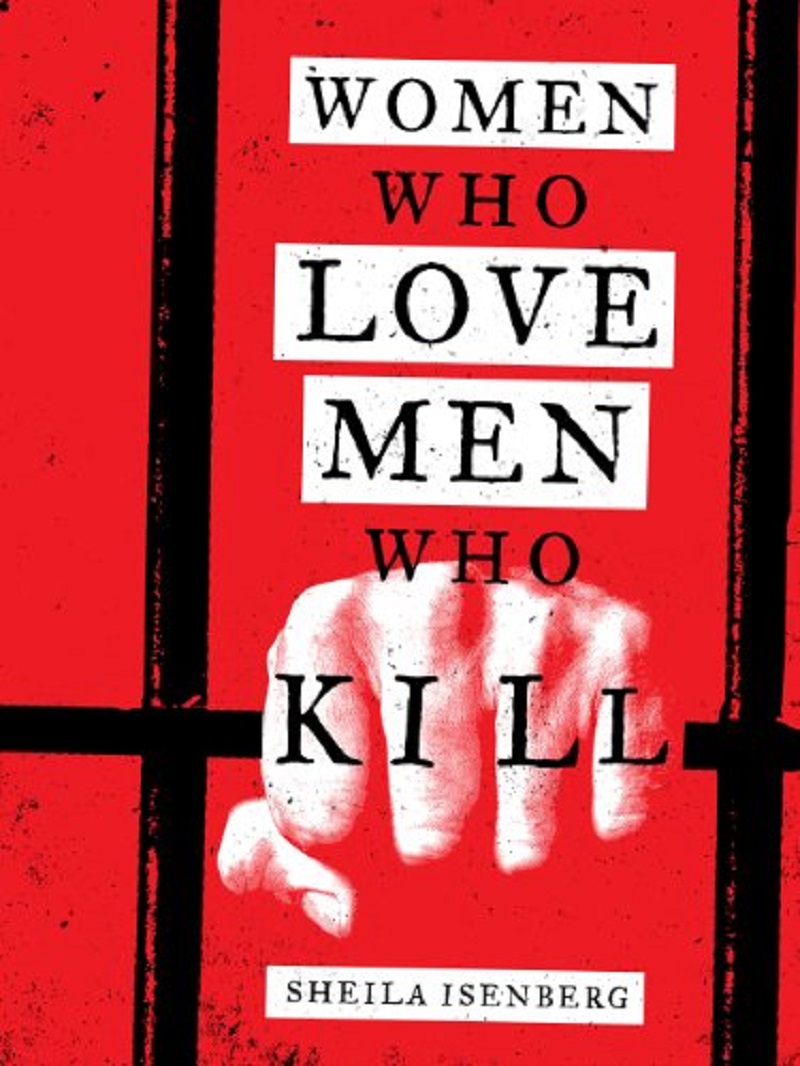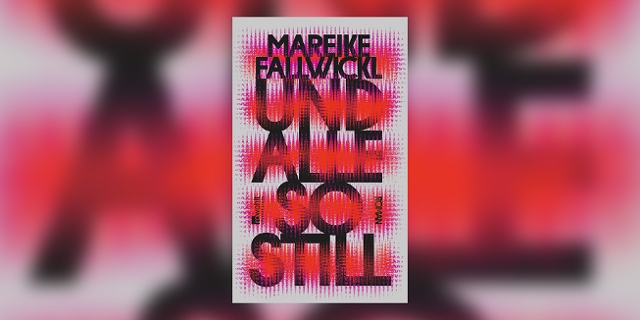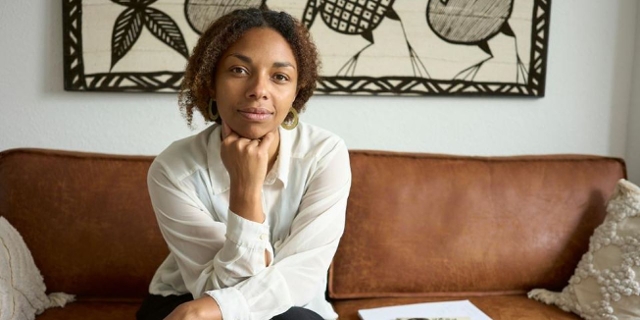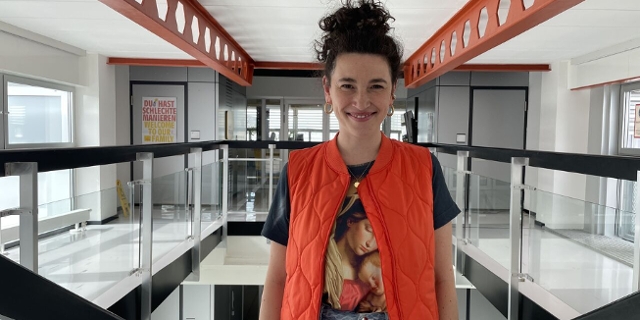Mord, Liebe und das Internet
Conny Lee im Gespräch mit Sheila Isenberg
Radio FM4: 1991 was the year when „Women who love men who kill“ was published. It’s exactly 30 years ago, and this year you published an updated edition of your book. What made you go back to your book and do a whole new edition of it?
Sheila Isenberg: Well, I have to say that for at least the last 10 years, my daughter has been urging me to write a sequel or an updated version because she thought the book was wonderful and she thought it needed to be brought into the present day. But I was a bit reluctant because I thought I had said everything I had to say. But she was very convincing. You know, daughters are like that. And she convinced me pretty much that I had a lot of new things to say. Then we got an offer from a publisher who said we would like to publish a second edition and we would like you to update the books, of course.
When I wrote the first edition, there was no internet, so I had to track down every single woman in the book. You know, the hard way, legwork, phone calls, letters, connections and now with the internet tracking people down is easy. And for the women, meeting men in prison is easy.
Radio FM4: So for the first edition, you talked to women who were in love or in relationships or both with men in prison, partly convicted murders. So how has digitalization changed how prison inmates meet women?

Diversion Books
„Women who love men who kill - 35 True Stories of Prison Passion (Updated Edition)“ von Sheila Isenberg ist bei Diversion Books erschienen.
Sheila Isenberg: Well, the digital age has completely revolutionized the lives of women who love men who kill. Wireless technology, and the search for true love in a prisoner may have joined together in a perfect storm of participatory culture and collective intelligence. There is absolutely no aspect of relationships between women on the outside and men on the inside that has not changed because of the digital age.
First of all, how the women meet the men - in the past, they met them the old-fashioned way. A woman would say to another woman, „I’ve got a friend in prison. He’s lonely“, or „I heard about someone who needs someone to write to him“. Also, men put ads in magazines looking for pen pals. And the third way that women met men back then was because they worked in a prison. They were nurses or prison guards or they had some interactions with prisoners, for example, as journalists or social workers.
Today, women go online to meet men, and the men go online to meet women. We have this phenomenon known as the prison pen pal websites. There are about a dozen and they all have many participants. But I found through my research that the most successful is WriteAPrisoner.com. So a prisoner will put his biography and his photo online for a nominal sum. And then just like a woman will go online looking for a date on a dating app, some women will go online on a prison pen pal site and look for a prisoner. She sends him an email, and there are ways that prisoners can actually receive emails.
They have these little gadgets inside the prisons that look like ATMs, and they’re actually communication centers through which the prisoner - if he pays money, or if someone pays money for him - he can receive emails, he can receive videos and he can also send them, which is really amazing. He’s not connected to the internet the way we are in the sense that he can’t go online and look for things. He just receives the email. But this is the change the digital age has brought about in the way women and men meet, and it’s just super easy for them to meet today.
Radio FM4: So they have much closer relationships than they used to, but still have the safety that these women you described were looking for. Very often women who had experienced abuse earlier in their lives, as you wrote in your earlier book, actually seek contact and relationships to men who kill. But also, there’s this other phenomenon, the exceeding number of female fans of true crime series. Be it on TV, podcast series, true crime books - there are many statistics that show that two thirds of the audience who consume true crime are female. What is your answer to why this is the case?
Sheila Isenberg: Well, you’ve hit upon a new book that I’m writing. I don’t want to give the whole thing away, but when I was doing the research for „Women who love men who kill“ I asked the question why? Why are they attracted to these men? Why do they have relationships with them? And everyone said, „Well, the women are crazy.“ But I felt that there must be a deep psychological reason, and I went out and I found that reason. I found, as you said, that they had abusive or traumatic pasts in their childhoods and their earlier relationships with men that made them seek relationships that counterintuitively were safe because the men were behind bars. Well, first of all, I found the same thing this time. All the women I interviewed for the second edition of the book, I found the same thing. I thought maybe things had changed, but of course they hadn’t. Now back to your question about true crime. I think my preliminary research for the new book, which is called „Mad for murder“ shows me again that there is a deep reason for women’s fascination with true crime. And again, it has to do with being a woman in society and all that that entails.
Radio FM4: So it is connected with a sense of empowerment?
Sheila Isenberg: It’s connected with the sense of lack of empowerment. And all of the things that go along with being a woman in society: rising numbers of domestic homicide, rising numbers of rape and sexual abuse and sexual assault. The fact that out of 100 perpetrators of rape and sexual assault, 99 will go free. It has to do with the fact that again, Roe v. Wade, which allowed women to pursue the route of having an abortion should they choose to, is now under fire and may go down the drain. So all of the - shall we say - deficits of being a woman in society have to do with why women love true crime.
Radio FM4: So last time we talked two years ago, you criticized the way that mainstream media covered killers. You said you had them 24-7, their pictures, their names on TV. And by this, they were creating a hype around the killers. So do you think that mainstream media coverage has changed over the last 30 years? Has it gotten more sensitive?
Sheila Isenberg: I don’t think so. I think that if anything, everyone is less sensitive about extolling murderers and making them into heroes. I mean, let’s take Ted Bundy for example - the man was executed years ago. He’s dead. But he still is the subject of movies and documentaries being made about him. And why are they being made about him? Because the people making them want to make money, so it’s not just the mainstream media, it’s all the media: it’s the streaming platforms like Netflix, it’s social media platforms. It seems like we’re in a tsunami of crime, murder, criminals, mass murder, and you can’t turn around without reading something about it.
Women’s fascination with true crime has to do with being a woman in society and all that that entails.
Radio FM4: What role does social media play in this extolling of killers and murderers?
Sheila Isenberg: Well, I divide the killers into two types. The killers who are not famous, they just committed one murder and they’re in prison. They put their bio and their picture up online and they get a girlfriend or they get a woman to fall in love with them. But then we have these notorious killers like the Boston marathon bomber or Chris Watts, who killed his whole family. Those people engender fan club groups online in social media. Chris Watts had at his height several Facebook groups talking about him, about the crime, deciding if he was really guilty, even after he confessed, had been convicted and was in prison.
There are still groups dissecting the crime and analyzing it and blaming the victim, the wife, blaming the girlfriend with whom he was having an affair. Of course, a lot of them also blaming him. So some of these groups had 10-15000 members on Facebook. And then there’s Tik Tok, Twitter, Instagram. All of these groups give rise to interactions between followers of these murderers and serial killers.
Many of these young girls say things like „I know it’s wrong, but I can’t stop doing it, and it makes me feel better“.
And there’s fan fiction, written by teenage girls or extremely young women. They write fan fiction where they make up stories about themselves in a story with a serial killer like Ted Bundy or a mass murderer like Chris Watts or Nikolas Cruz, who shot all those high school students and teachers in Florida. I haven’t done enough research on that yet, but what I did find was that many of these young girls say things like „I know it’s wrong, but I can’t stop doing it, and it makes me feel better“. So you have to ask, why does it make them feel better? Social media gives them an outlet for expressing these thoughts and feelings.
Radio FM4: Thank you very much for this insight and for this interview. And I’m really looking forward also to your next book.
Sheila Isenberg: Thank you.
Publiziert am 23.11.2021




















